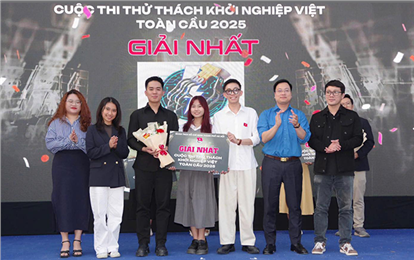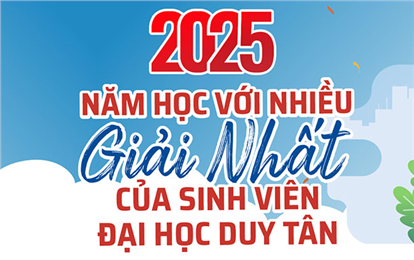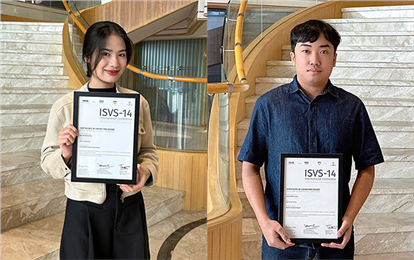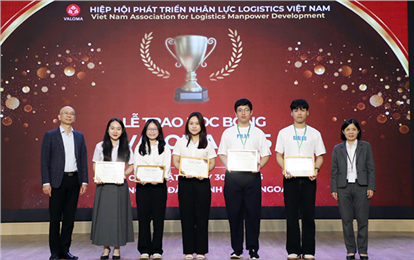Achievements
Outstanding DTU IT Application Honored at the 2018 Sao Khue Awards
An outstanding IT application developed by DTU researchers, which uses 3D Virtual Reality Technology to Simulate the Human body for Health Science Education and Research, was recognized at the 2018 Sao Khue awards ceremony, held in Hanoi on April 21.

Dr. Le Nguyen Bao, DTU Vice-Provost and project team leader, receives the 2018 Sao Khue Award
The Sao Khue Award is the most prestigious prize granted by the Vietnamese software and IT services industry, and honors unique and innovative IT applications, solutions, and services. The Vietnam Software and IT Services Association (VINASA) has hosted the awards ceremony annually since 2003.

The Sao Khue Award
The Vietnam Talent Awards has also become nationally recognized, and honors academic projects which benefit society, in the fields of the environment, science & technology, health and medicine. At the 2017 Vietnam Talent Awards in Hanoi, Prime Minister Nguyen Xuan Phuc presented first prize in the IT category to the DTU 3D Virtual Reality application.
The DTU researchers, including team leader Dr. Le Nguyen Bao, Le Van Chung, Trinh Hiep Hoa, Le Khac Trieu Hung, Nguyen Luong Tho, Nguyen Minh Duc and Le Hoang Quoc Bao, worked on their project for five years. The application has been highly praised for its positive contribution to the teaching of medicine. In particular, the development of a new 3D Anatomical Simulation Technology application has almost been completed. It models human systems and organs, including simulations of the skeleton, muscles, vascular system and heart, the nervous system and brain, the respiratory system, the digestive system, the excretory and reproductive systems, glands and nodes. So far, 3,924 simulations have been developed to model exact Vietnamese anatomical characteristics.
Leading lecturers at medical universities and big hospitals in Vietnam have examined, evaluated and confirmed the authenticity of the application, which is quite unique compared with many of the other simulation products currently available around the world. The application teaches students how to visualize each organ and specific anatomical details, allowing direct interaction by rotating, hiding, displaying, moving and marking using a 3D projector, 3D glasses or virtual reality (VR) glasses, such as Oculus Rift, Gear VR, HTC Vive, or by using a desktop or handheld computer, running on Windows, Mac, or Linux, or through a smartphone and tablet, running on an Android or iOS operating system.
Students are able to search for documentation in English, Vietnamese or Latin, learning from retrieved information. The application has eliminated the traditional theoretical teaching methods that existed in several medical schools and educational institutions. The students are now able to visualize the human body from different angles, to study more thoroughly and prepare themselves for their future professions.
(Media Center)
Other News









